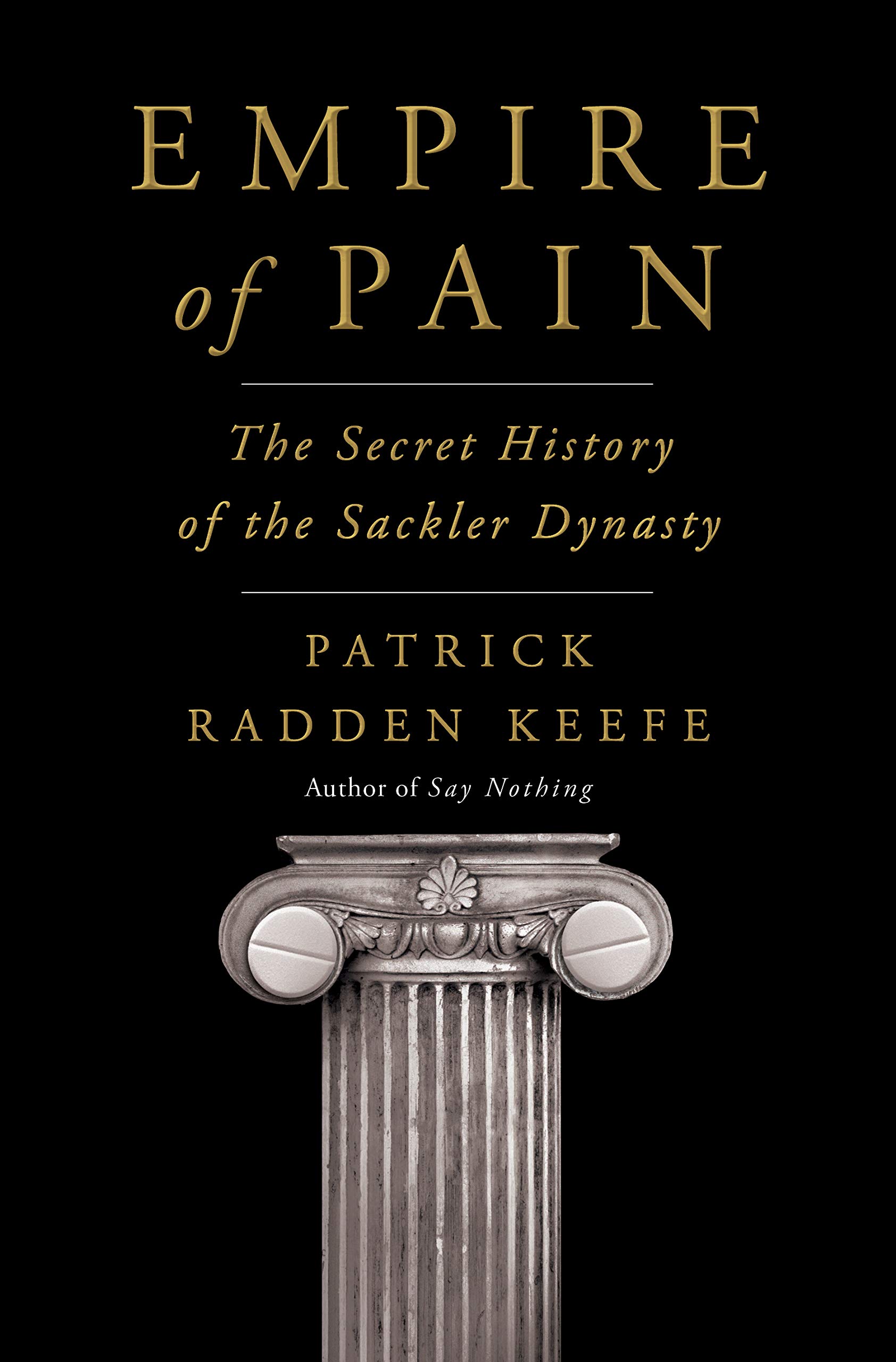
Patrick Radden Keefe’s Empire of Pain: The Secret History of the Sackler Dynasty is one of the most devastating and important works of investigative nonfiction in recent memory. Winner of the Goodreads Choice Award for Best History & Biography, this book exposes the dark truth behind one of America’s wealthiest and most “philanthropic” families, whose empire was built not on innovation or compassion, but on the suffering of millions.
The Sackler name once symbolized culture and generosity. It adorned the walls of the Louvre, Harvard, and the Metropolitan Museum of Art. But behind this glossy façade of benevolence lies a story of greed, deception, and moral collapse. Through decades of manipulative marketing and calculated denial, the Sacklers made their fortune from OxyContin, a drug that ignited the opioid epidemic and destroyed countless lives across the United States.
What makes Empire of Pain so extraordinary is the depth and precision of Keefe’s reporting. Drawing from hundreds of interviews, court documents, and internal company records, he pieces together the rise of the Sackler family over three generations, from humble beginnings to unimaginable wealth. The story begins with Isaac Sackler, an immigrant who urged his sons to honor the family name above all else. By the time his grandsons took over Purdue Pharma, that “good name” had become a shield for ruthless ambition.
Arthur Sackler, the eldest brother, revolutionized pharmaceutical advertising in the mid-twentieth century. He discovered that by aggressively marketing prescription drugs directly to doctors, he could drive demand far beyond medical necessity. Decades later, his nephews and descendants used those same tactics to push OxyContin as a “safe, non-addictive” painkiller, despite mounting evidence to the contrary. When reports of addiction and overdose began surfacing, the Sacklers and Purdue responded not with remorse but with denial and blame-shifting.
Keefe presents chilling moments that lay bare the family’s callousness. In one instance, when Purdue’s president Richard Sackler received a report of 59 overdose deaths in a single state, he wrote, “This is not too bad. It could have been far worse.” It is the kind of statement that freezes your blood. The Sacklers’ obsession with wealth and reputation went so far that even as their drug devastated communities, they continued to donate billions to museums and universities, buying respectability one plaque at a time.
Yet, as Keefe carefully notes, the Sacklers did not act alone. Their empire was enabled by a network of complicit institutions: the FDA that fast-tracked approvals, doctors who overprescribed, and government officials who looked the other way. This is not only the story of one family’s corruption, but of a system that rewards greed and shields power from accountability.
Despite its density of facts and legal detail, Empire of Pain reads with the momentum of a thriller. Keefe’s writing is elegant, unflinching, and filled with moral clarity. He does not sensationalize; instead, he lets the evidence speak for itself. Each chapter deepens the reader’s outrage, while also revealing the psychological and cultural forces that allowed such evil to thrive under the guise of respectability.
Many readers have described this book as “infuriating,” and it truly is. You cannot read it without feeling both heartbreak and anger at the scale of human suffering caused by corporate deceit. But it is also profoundly necessary reading a masterclass in journalism that confronts power with truth.
Empire of Pain is more than a history of one family. It is a mirror held up to our society, forcing us to ask how much destruction we are willing to overlook in the name of profit, prestige, and philanthropy. Patrick Radden Keefe has written a modern classic that ensures the Sackler name, once synonymous with honor, will forever be remembered for the empire it built an empire of pain.


